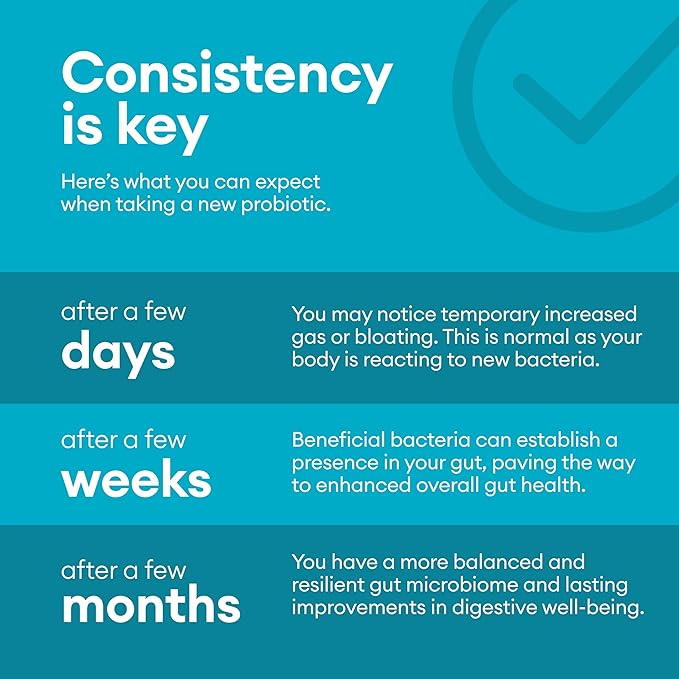Table of Contents
What are Probiotics?
Probiotics are live microorganisms that, when consumed in adequate amounts, offer a range of health benefits to the host. Commonly referred to as “good” or “friendly” bacteria, these tiny helpers reside primarily in our digestive systems and play a crucial role in maintaining gut health and enhancing overall well-being.
Key Points:
- Definition: Probiotics are beneficial bacteria that are similar to organisms naturally found in the human digestive tract. They can be consumed through certain foods or supplements.
- Main Types: The most common types of probiotics are Lactobacillus and Bifidobacterium, which are found in yogurts and other fermented products. Another type, Saccharomyces boulardii, is a yeast found in probiotics.
- Health Benefits: These microorganisms help balance the gut microbiota, which is vital for digestion, absorption of nutrients, and immune function.
Probiotics are not a one-size-fits-all solution; their benefits can vary depending on the type and amount consumed. Scientific research supports their use in promoting a healthy digestive system and they may also play roles in supporting mental health, reducing allergies, and weight management.

How Do Probiotics Work?
Having introduced what probiotics are, let’s delve deeper into how these beneficial bacteria operate within our bodies. Probiotics interact dynamically with our gut microbiome, the complex community of microorganisms that inhabit our gastrointestinal tract, to promote health in various ways.
Key Mechanisms:
- Enhancing Gut Barrier: Probiotics bolster the intestinal wall, forming a protective barrier against pathogens that can lead to illness.
- Modulating Immunity: These microorganisms play a critical role in balancing the immune system, helping it respond effectively to pathogens while avoiding excessive inflammation.
- Balancing Microflora: Probiotics maintain a healthy equilibrium in the gut by outcompeting harmful bacteria for nutrients and space, which is essential for preventing infections.
Impact on Digestive Health:
- Beyond aiding in food digestion, probiotics are instrumental in the breakdown and absorption of medications and can relieve symptoms of common gastrointestinal disorders like irritable bowel syndrome (IBS), inflammatory bowel disease (IBD), and infectious diarrhea.
Beyond Digestion:
- The benefits of probiotics extend past the gut; they are also known to improve skin health, reduce the incidence of urinary and genital infections, and might influence mental health through the gut-brain axis.
Probiotics must survive the stomach’s acidic environment to be effective. Advances in probiotic formulations ensure that these beneficial bacteria can endure this journey and reach the intestines in active form, where they provide the most benefit.
Different Types of Probiotics and How to Tell If You Need Them
Probiotics come in various strains, each offering unique benefits. Knowing the different types can help you choose the right probiotic based on your specific health needs.
Major Categories:
- Lactobacillus: This is perhaps the most common probiotic, found in yogurt and other fermented foods. It’s helpful for diarrhea and can aid those who are lactose intolerant.
- Bifidobacterium: Available in some dairy products, it can ease symptoms of irritable bowel syndrome (IBS) and other conditions.
- Saccharomyces boulardii: A yeast that can combat diarrhea and other digestive problems.
Specialty Strains:
- Streptococcus thermophilus: Known to promote better digestion and higher immunity.
- Enterococcus faecium: Contributes to gut health and balance and is found in the intestinal flora.
Indications You Might Need a Probiotic:
- Digestive Discomfort: Frequent issues like bloating, gas, diarrhea, or constipation can indicate an imbalance in gut bacteria.
- After Antibiotic Use: Antibiotics can disrupt your natural microbiome. Taking probiotics can help restore the balance.
- Immune Challenges: Frequent infections or a compromised immune system might benefit from the immune-boosting effects of probiotics.
- Skin Conditions: Issues like eczema and acne have been linked to gut health. Probiotics may help by influencing the body’s inflammatory responses.
- For Pregnant Women: To support both digestive and vaginal health, specially formulated probiotics can be beneficial, especially to maintain a balanced vaginal flora.
Tailored probiotic supplementation, such as women’s probiotics and vaginal probiotics, is designed to address specific conditions, enhancing the personalization of healthcare routines.
Each strain of probiotics has its own plan of action, acting on various parts of the body differently. While some may bolster the immune system directly, others alter the pH level of the intestine, deterring harmful bacteria and promoting overall health.
What Do Probiotics Do? (Practical Use Cases)
Probiotics are more than just supplements; they are key allies in maintaining and enhancing health across various aspects of life. Here’s how these powerful microorganisms make a significant impact:
Digestive Health:
- Alleviating Digestive Disorders: Probiotics help manage conditions like irritable bowel syndrome (IBS), inflammatory bowel disease (IBD), and acute infectious diarrhea by restoring gut flora balance.
- Enhancing Nutrient Absorption: They improve the gut environment, facilitating better absorption of vital nutrients like vitamins and minerals, boosting overall health.
Immune System Support:
- Boosting Immune Responses: Probiotics enhance the production of natural antibodies and support immune cells like lymphocytes and IgA-producing cells.
- Reducing Cold and Flu Incidence: Regular intake can decrease the severity and length of colds and flu.
Women’s Health:
- Maintaining Vaginal Health: Specially formulated probiotics for vaginal health help maintain a healthy vaginal microbiota, preventing infections such as yeast infections and bacterial vaginosis. 🌸 Explore our recommended women’s probiotics for optimal vaginal and reproductive health! Shop Now
- Support During Pregnancy: Probiotics manage gut and vaginal flora during pregnancy, reducing risk complications and enhancing nutrient absorption crucial for fetal development. 🤰 Discover the benefits of our carefully selected prenatal probiotics! Shop Now

Mental Health:
- Gut-Brain Axis: Emerging research shows probiotics can impact mental health by interacting with the gut-brain axis, potentially easing symptoms of depression, anxiety, and stress.
Skin Health:
- Combatting Skin Issues: Certain strains are effective against skin conditions like eczema, acne, and rosacea, likely due to their ability to reduce inflammation and modulate local immune responses.
Discover the Ultimate Skincare Routine That Works Wonders! 🌟
Probiotics offer a diverse range of health benefits that can be directly influenced by the specific strains used. By incorporating targeted probiotic supplements into your daily routine, you can significantly enhance your health outcomes in areas ranging from digestive health to mental wellbeing.

FAQ: Common Questions About Probiotics
Probiotics are a topic of interest for many, but they also come with plenty of questions. Here, we address some of the most frequently asked questions to help clarify their benefits and uses.
1. Who should take probiotics?
- Answer: Almost anyone can benefit from probiotics, especially individuals experiencing digestive disturbances, those who have recently taken antibiotics, women seeking to maintain vaginal health, and anyone looking to enhance their immune function.
2. Are there any side effects of taking probiotics?
- Answer: Probiotics are generally safe and well-tolerated. Some people may experience mild digestive symptoms such as gas and bloating when they first start taking probiotics. These symptoms usually subside as the body adjusts.
3. How long does it take for probiotics to work?
- Answer: The effects of probiotics can vary depending on the individual and the condition being treated. Some people may notice improvements in digestive health within a few days, while other benefits, like immune support, may take several weeks to manifest.
4. Can I take probiotics with other medications?
- Answer: Probiotics can generally be taken alongside other medications, but it’s always a good idea to discuss this with your healthcare provider, especially if you are on immunosuppressive drugs.
5. How do I choose the right probiotic?
- Answer: Choosing the right probiotic depends on your health needs. Look for products that specify the strains of bacteria they contain, as different strains have different effects. Products like women’s probiotics and vaginal probiotics are formulated to target specific areas and concerns. 🌼 Check out our top picks for targeted probiotic supplements! Explore Now
6. Do probiotics need to be refrigerated?
- Answer: Some probiotics need to be kept in the refrigerator to maintain their efficacy, while others are formulated to be shelf-stable. Always check the storage instructions on the label.
🌟 Interested in More Health Insights? 🌟 Explore our collection of articles on everything from nutrition tips to wellness strategies! Whether you’re looking to dive deeper into the benefits of supplements or discover natural ways to enhance your health, our extensive resource library has you covered. 📚 Start Your Journey Here!






